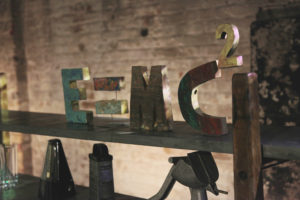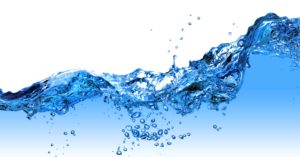E=MC2 Model in studio
Water is a key ingredient in metal production.
In an arid country like Australia, we need to make sure we do our best to conserve water and we’ve come up with a way that will help industry do just that.
It involves life cycle analysis, and it can calculate the amount of water used – both directly and indirectly – in the production of metals.
To give you an idea, we calculated that it takes 1600 litres of water to make the 19 kilograms of copper in an average medium-sized car. Add up the water required to make all of the other metals found in your car and you’re practically driving around a swimming pool!
Water is an essential ingredient in a metal’s transformation from an impure mineral ore to a pure metal product. The more impurities, or the lower the grade of the ore, the more water it takes to process it.
In Australia many of our high grade ores have been depleted, so industry is increasingly mining these lower-grade ores. Mines are also often located in remote Australia where water is a scarce resource so as you can imagine, the interest in reducing water use is high.
While the minerals industry already makes good use of water recycling opportunities, this in itself is not always the best way to improve sustainability.
There’s more copper (and water) in your car than you might think.
“Recycling water is not always a straightforward task,” says lead researcher, Dr Nawshad Haque.
“Water may be degraded or contaminated during mineral extraction and production processes, and in order for it to be reused it must be treated to meet the specifications required for plant operations.”
Our research team focussed on the most water intensive metals including nickel, copper and gold. By providing information on water usage and comparisons to other industrial processes, the tool will enable better water management.
You can read the full story in the latest issue of resourceful, released this week.




22nd December 2013 at 9:13 am
Not much water in my car, what was used to make the car has evaporated by now and recycled many times over!